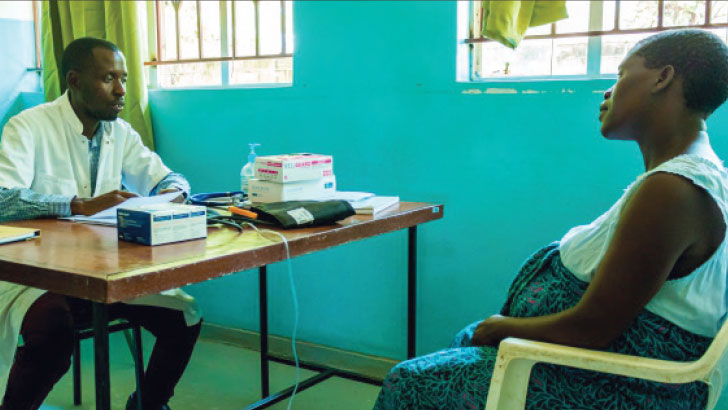Ending malaria is possible
Mangochi, like other low-lying districts along the shoreline of Lake Malawi, has the highest incidence of malaria.
The prevalence rate of the country’s deadliest disease surges during the rainy season from November through April.
The Ministry of Health reports that just last year, malaria claimed about 2 500 lives from about seven million cases treated countrywide.
According to severe malaria observatory, about 7.4 percent of all malaria cases in the eastern and southern Africa occur in Malawi. The disease claims six lives every day nationwide.
Lamusi Abudu, Mangochi district malaria coordinator, says the disease constituted almost half of all outpatients and admissions at Mangochi District Hospital and all the 48 health centres in the shoreline setting.

“We had a heavy workload that affected all health workers, who also have to treat other diseases,” he says. “Drugs could run out of stock frequently, making many patients unable to receive full treatment.”
Abudu says the health facilities used to record over 300 malaria cases out of 1000 people annually.
“For instance, in 2015 alone, 341 people died of malaria. The disease has been killing more people annually than any other,” he says.
Abudu, who is also a clinical officer at the district’s maternity wing, says the disease also threatens lives of children.
“About 246 children afed under five died of the disease in 2015/16 period. The death toll reached 254 in subsequent years,” he recalls.
Labia Mbewe of Chindamba Village in Traditional Authority (T/A) Chowe says the disease affects all aspects of her family life.
Malaria constantly pushes them into poverty as they have to shell their hard-earned cash on hospital trips and stays instead of buying basic needs.
She explains: “My two children used to get sick one after the other. Most of the time, my husband had to stop doing business as he had to help me to nurse them.
“We also used to spend our little income from piecework on frequent hospital visits.”
Interestingly, the household has gone three years without experiencing malaria.
The 38-year-old woman’s household now has more time to do business, keep children in school and lift themselves out of poverty.
Mbewe attributes the development to the use of long-lasting insecticides-treated nets and indoor residual spraying that keep away infective anopheles mosquitos.
Mbewe says the nets and spray have made malaria history in her family.
“We now have peace of mind, knowing we are safe from mosquitos that cause malaria. We are now proactive to improve our lives and my children go to school as required,” she says.
World Vision Malawi has ramped up the fight against malaria with financial support from Global Fund in partnership with Ministry of Health.
They are implementing malaria control strategies in hotspots across the country.
Abudu says the initiatives have helped the district to beat the National Malaria Control Programme goal of reducing the cases from 386 to 193 per 1 000 people by 2022.
He brags: “We have hit 183 cases per 1 000. These interventions, especially indoor residual spray, have also reduced admissions in the health facilities.
“We have surplus of malaria drug, Artemether Lumefantrine (LA), which we now dispatch to other districts struggling with the disease.”
With intensified IRS, the clinical officer says they target to reduce the cases to 120 by 2022.
“We have also reduced malaria deaths by 60 percent. This initiative complements our efforts to combat malaria for sustainable health and development of citizens,” says Abudu.
Mangochi World Vision Malawi coordinator Confidence Mkungula says the faith-based non-governmental organisation is impressed with the push to make Mangochi malaria-free.
“IRS and other interventions in the project help us to keep people, especially children, safe from malaria. We want to reduce illness and deaths among children by 25 percent,” she says.
Currently, the Christian organisation is implementing the IRS targeting 336 257 households in Mangochi, Nkhotakota and Dedza, which play home to a about 1.2 million.





